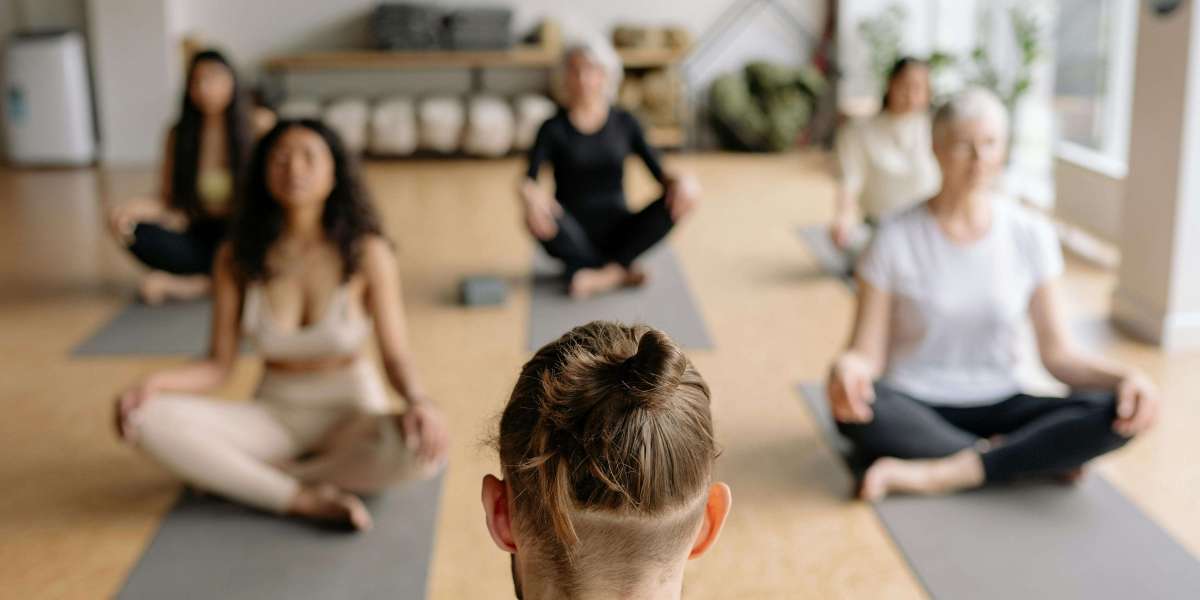Starting yoga as a beginner can feel both exciting and overwhelming. Many newcomers wonder whether they are flexible enough, how to perform postures correctly, or if they will be able to keep up with more experienced practitioners. While local yoga classes provide a good introduction, they often don’t offer the depth, guidance, and environment needed for true transformation.
This is where yoga retreats come in. A yoga retreat is an immersive experience, usually set in serene, natural surroundings, where participants practice yoga, meditation, and mindful living for several days. For beginners, retreats are the perfect way to start because they provide supportive teachers, structured routines, and a nurturing environment. Instead of dipping into yoga once or twice a week, retreats offer complete immersion—making it easier to grasp fundamentals, develop confidence, and feel the real benefits of yoga from the very beginning.
1. Gentle, Step-by-Step Learning
One of the main concerns beginners have is whether they can keep up. Retreats are designed with inclusivity in mind:
Beginner-Friendly Classes: Most retreats offer sessions for all levels, ensuring that new students learn foundational postures without pressure.
Patient Guidance: Teachers at retreats know how to break down complex movements into simple steps.
Focus on Alignment: Beginners get time and personal attention to understand correct form, reducing the risk of injury.
This structured approach helps participants build a solid foundation they can carry into their regular practice later.
2. Immersive Experience for Faster Learning
In a regular class setting, beginners may only practice for an hour or two per week. Retreats, however, offer multiple sessions daily:
Morning yoga to energize the body.
Pranayama and breathwork to boost awareness.
Evening meditation or restorative yoga to release stress.
This consistent immersion accelerates learning. What might take months in weekly classes can often be grasped in just a few days of retreat practice.
3. A Stress-Free, Supportive Environment
Beginners often feel self-conscious in crowded gyms or studios. Retreats provide the opposite:
No Judgment Zone: Everyone is focused on personal growth rather than comparison.
Peaceful Locations: Retreats are usually held in natural, tranquil settings that promote relaxation and openness.
Encouragement and Support: Teachers and fellow participants create a welcoming atmosphere where questions are encouraged.
This safe environment allows beginners to explore yoga without fear or hesitation.
4. Understanding Yoga Beyond Postures
For many beginners, yoga initially means physical exercise. A retreat introduces yoga as a holistic lifestyle:
Meditation Practices: Learning to calm the mind and cultivate awareness.
Philosophy Sessions: Exploring ancient wisdom from texts like the Yoga Sutras or Bhagavad Gita.
Healthy Eating: Enjoying sattvic (pure, nourishing) meals that align with yogic principles.
Mindful Living: Embracing simplicity, gratitude, and balance.
This broader understanding helps beginners see yoga as more than just fitness—it becomes a way of living.
5. Building Healthy Routines
One of the greatest benefits for beginners is learning how to structure daily life around yoga:
Consistent Schedule: Retreats follow a disciplined routine of practice, meals, and rest.
Mindful Habits: Participants learn the value of early rising, eating clean, and practicing regularly.
Take-Home Practices: Beginners leave with simple routines they can maintain at home.
This structure helps create lasting lifestyle changes, rather than treating yoga as a temporary activity.
6. Boosting Confidence and Motivation
Stepping into yoga as a beginner can feel intimidating, but retreats quickly build confidence:
Visible Progress: Daily practice allows participants to see rapid improvement in flexibility, balance, and focus.
Safe Exploration: Beginners learn to listen to their body without overpushing.
Encouragement: Teachers and peers celebrate small victories, boosting motivation.
By the end of a retreat, most beginners feel empowered to continue their yoga journey independently.
7. Connecting with a Like-Minded Community
One of the unique aspects of retreats is the sense of community:
Beginners practice alongside others at similar stages.
Sharing experiences creates bonds and support networks.
International retreats often bring together people from different cultures, expanding perspectives.
For beginners, this community helps dissolve feelings of isolation and inspires continued practice.
8. Experiencing the Healing Power of Nature
Most retreats are located in peaceful, natural environments—mountains, beaches, or forests. For beginners, this connection to nature enhances the yoga experience:
Fresh air and clean surroundings support physical health.
Natural beauty reduces stress and promotes calm.
Practicing outdoors deepens mindfulness and presence.
This immersion in nature makes the first yoga experience even more powerful and memorable.
9. Long-Term Benefits for Beginners
A yoga retreat does more than provide a temporary break—it lays the foundation for lifelong practice:
Healthier Lifestyle Choices: Participants often return home eating better and sleeping more deeply.
Daily Practice Motivation: Having experienced the benefits firsthand, beginners are more likely to continue.
Deeper Awareness: Self-reflection during the retreat builds mindfulness that lasts.
Resilience: Beginners learn tools to handle stress and challenges in everyday life.
Thus, the retreat becomes the launching pad for a sustained yoga journey.
Popular Yoga Programs in Rishikesh
Students often choose Rishikesh because of the wide range of yoga courses available, catering to every level of practice.
100 Hour Yoga Teacher Training Course In Rishikesh – A short-term foundational course ideal for beginners or travelers looking to deepen their practice in a limited timeframe.
200 Hour Yoga Teacher Training – The most popular certification, providing a complete introduction to teaching methodology, philosophy, and balanced practice.
300 Hour Yoga Teacher Training – An advanced course designed for students who have already completed 200 hours and want to master their skills.
500 Hour Yoga Teacher Training In Rishikesh – A comprehensive program combining 200 and 300 hours, perfect for those who want the highest level of yoga education.
7 Days Yoga Retreat In Rishikesh – A wellness-focused retreat for students who may not want certification but are seeking rejuvenation, relaxation, and balance.
Conclusion
Yoga retreats are perfect for beginners because they combine learning, support, and environment in a way no regular class can. They gently introduce yoga step by step, while offering immersion, community, and holistic wellness practices. Instead of feeling overwhelmed, beginners find themselves empowered, relaxed, and inspired to continue practicing beyond the retreat.
For anyone new to yoga, a retreat is not just a vacation—it’s the start of a transformative journey toward health, clarity, and inner peace.
FAQ: Why Yoga Retreats Are Perfect for Beginners
Q1: Do I need to be flexible to join a yoga retreat?
Not at all. Retreats are designed for all levels, and flexibility naturally improves with practice.
Q2: Will I feel out of place as a beginner?
No. Many participants are beginners, and teachers create supportive environments where everyone feels included.
Q3: How long should a beginner’s yoga retreat be?
Even a short retreat (3–5 days) can provide a strong foundation, while longer ones allow deeper practice.
Q4: Do retreats only focus on physical yoga?
No. They also include meditation, breathwork, philosophy, and lifestyle practices for holistic growth.
Q5: Are yoga retreats expensive for beginners?
Retreats vary widely in cost. Many offer affordable options, especially in India, Nepal, and Southeast Asia.
Q6: What should beginners pack for a yoga retreat?
Comfortable yoga clothes, a reusable water bottle, journal, and openness to learn. Most essentials are provided by the retreat center.
Q7: Can a retreat really change my perspective as a beginner?
Yes. Many beginners leave retreats feeling lighter, calmer, and more motivated than ever before.













